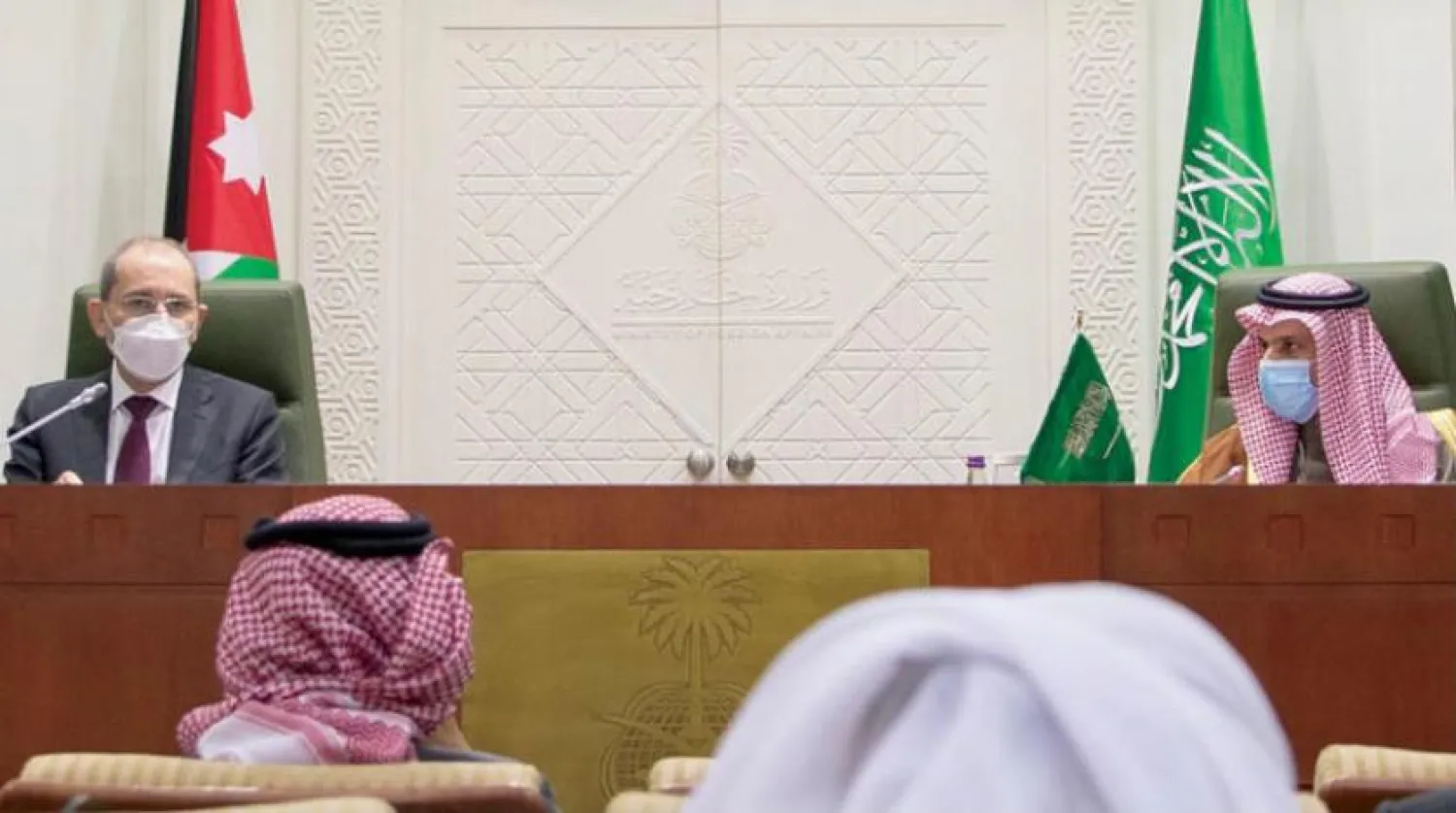The kingdoms of Saudi Arabia and Jordan enjoy a common vision on a host of regional issues like finding a just and comprehensive settlement for the Palestinian cause, resolving crises in Yemen, Syria, Libya and Lebanon, and upholding the rejection of Iranian and Turkish interference in the internal affairs of neighboring countries.
Saudi Arabia's foreign minister received his Jordanian counterpart in Riyadh on Saturday, the Saudi Press Agency reported.
They discussed bilateral relations and ways to support and promote them in a way that served common interests. The two foreign ministers also exchanged views on regional and international issues of common concern.
Saudi Foreign Minister Prince Faisal bin Farhan said: “We discussed the situation in Syria, Yemen, Lebanon and Libya, as well as Iranian and Turkish interventions in the affairs of the region’s states and Saudi Arabia. The Kingdom and Jordan’s views on these issues are compatible, and coordination between the two countries is based on the highest standards.”
The prince also said that the visit of Jordanian Foreign Minister Ayman Al-Safadi was aimed at enhancing the special relations between the two countries, and coordinating and consulting on the regional and international issues that interested both countries.
The two top diplomats highlighted the ongoing efforts towards furthering cooperation in various fields, voicing the two kingdoms’ determination to strengthen bilateral ties, according to a Foreign Ministry statement.
Talks also went over the preparations for the formation of a joint committee to develop practical steps to advance economic cooperation.
Reviewing the latest regional developments, Safadi and Prince Faisal reviewed the Amman-Riyadh coordination and consultation towards resolving regional crises and achieving security and stability.
Talks also emphasized the importance of bolstering joint Arab action and cooperation, the statement said.
For his part, Safadi said that the relationship between Jordan and Saudi Arabia is “historical and strategic,” adding that the two countries are working together to achieve security and stability in the region.
Safadi expressed thanks for Riyadh's support for Jordan to face the economic challenges, stressing that Saudi Arabia’s security is an integral part of Jordan’s security.
“We agree on rejecting foreign interference in Arab affairs, whatever the source is. To end tension in the region, especially with regard to Iran, we must address all the reasons beyond this tension, including interference in Arab affairs,” Safadi said.









